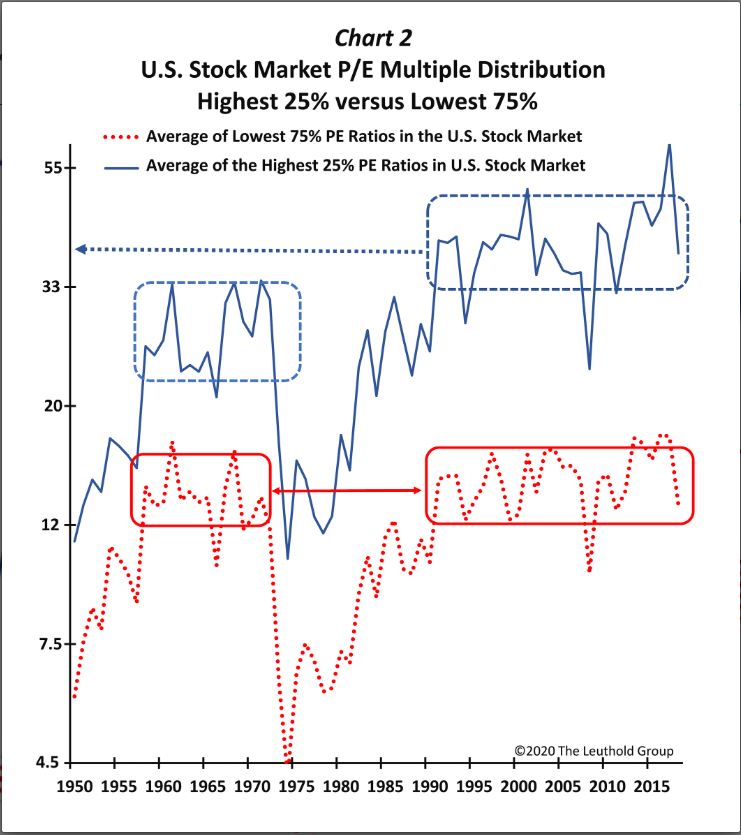BofA Reassures Investors: Why Current Stock Market Valuations Are Not A Worry

Table of Contents
BofA's Rationale Behind Their Positive Outlook
BofA's positive outlook on current stock market valuations rests on several key pillars. Their market analysis indicates several factors that mitigate concerns about high valuations. Their investment strategy acknowledges potential risks but highlights opportunities for growth.
-
Strong Corporate Earnings Growth: Despite facing economic headwinds, many corporations have demonstrated surprisingly robust earnings growth. This suggests that underlying fundamentals remain strong, supporting current valuations. BofA cites data showing X% year-over-year growth in corporate earnings for Q[Quarter], exceeding analyst expectations.
-
Positive Long-Term Economic Projections: BofA's economic forecasts paint a picture of sustained, albeit moderated, long-term growth. While acknowledging short-term uncertainties, their analysis suggests that the current economic climate is unlikely to trigger a significant market downturn. They project Y% GDP growth over the next Z years.
-
Attractive Valuations in Specific Sectors: BofA's market analysis identifies specific sectors presenting attractive valuations despite the overall market's perceived high valuations. They highlight opportunities for growth and value in these sectors.
-
Bullish Sectors: BofA is particularly bullish on the technology and healthcare sectors, citing strong innovation pipelines and resilient demand, even in a challenging macroeconomic environment. Their BofA investment strategy suggests overweighting these sectors in investor portfolios.
-
Data-Driven Approach: BofA’s analysis is not based on speculation but on rigorous data analysis and modeling, incorporating a wide range of economic indicators and corporate performance metrics to form a comprehensive view of the market.
Addressing Common Investor Concerns About High Valuations
Many investors are understandably apprehensive about high stock valuations. Let's address some common concerns:
-
Interest Rate Hikes: BofA's analysis incorporates the impact of interest rate hikes, suggesting that while these hikes might moderate growth, they are already largely priced into the market. Their models account for future rate adjustments and their projected influence on corporate profitability.
-
Inflation Impact: While inflation remains a concern, BofA's perspective acknowledges that many companies have demonstrated pricing power, offsetting the inflationary pressures. Their BofA market analysis suggests that inflation's impact on stock valuations is less severe than some anticipate.
-
Market Correction Concerns: Many fear an imminent market correction. BofA acknowledges the possibility of short-term market fluctuations, but their long-term perspective suggests that a significant correction is unlikely, given the underlying strength of the economy and corporate earnings.
-
Long-Term Growth Potential: BofA emphasizes the importance of a long-term investment horizon. While short-term volatility is inevitable, their analysis points towards considerable long-term growth potential despite short-term uncertainties. This long-term investment strategy helps investors weather short-term market fluctuations.
BofA's Recommendations for Investors
Based on their market assessment, BofA offers the following guidance for investors:
-
Sector-Specific Recommendations: Focus on sectors showing strong fundamentals and attractive valuations, such as technology and healthcare, as suggested by BofA's investment strategy.
-
Diversification: Employ diversified investment strategies to mitigate risks. This is crucial in any market environment, but especially important given the current uncertainties.
-
Risk Management: Implement appropriate risk management techniques, aligning investment strategies with personal risk tolerance levels.
-
Long-Term Perspective: Adopt a long-term investment approach, focusing on sustained growth rather than short-term market fluctuations. This long-term investment approach is key to successfully navigating market volatility.
BofA's Reassurance and a Call to Action
BofA's analysis suggests that while market volatility exists, current stock market valuations are not inherently alarming. Their positive outlook is grounded in strong corporate earnings, positive long-term economic projections, and the identification of attractive investment opportunities within specific sectors. They emphasize a long-term investment strategy and the importance of diversification to manage risk. While this article summarizes BofA's reassuring perspective on BofA stock market valuations, it's crucial to consult with a financial advisor and conduct your own thorough research before making any investment decisions. To learn more about BofA's market outlook and investment strategies, visit their website and explore their research resources. Remember, understanding BofA stock market valuations is key to informed investment decisions.

Featured Posts
-
 Live Nations Board Appointment Faces Backlash From Music Industry
May 29, 2025
Live Nations Board Appointment Faces Backlash From Music Industry
May 29, 2025 -
 Pcc Elevates Pakistans Global Crypto Influence In 50 Days
May 29, 2025
Pcc Elevates Pakistans Global Crypto Influence In 50 Days
May 29, 2025 -
 Alastqlal Tarykh Mshrq Wmstqbl Zahr
May 29, 2025
Alastqlal Tarykh Mshrq Wmstqbl Zahr
May 29, 2025 -
 Morgan Wallen And Post Malone Hello Kitty Plushies Now Available
May 29, 2025
Morgan Wallen And Post Malone Hello Kitty Plushies Now Available
May 29, 2025 -
 Top Music Lawyers 2025 Billboards Predicted Power List
May 29, 2025
Top Music Lawyers 2025 Billboards Predicted Power List
May 29, 2025
